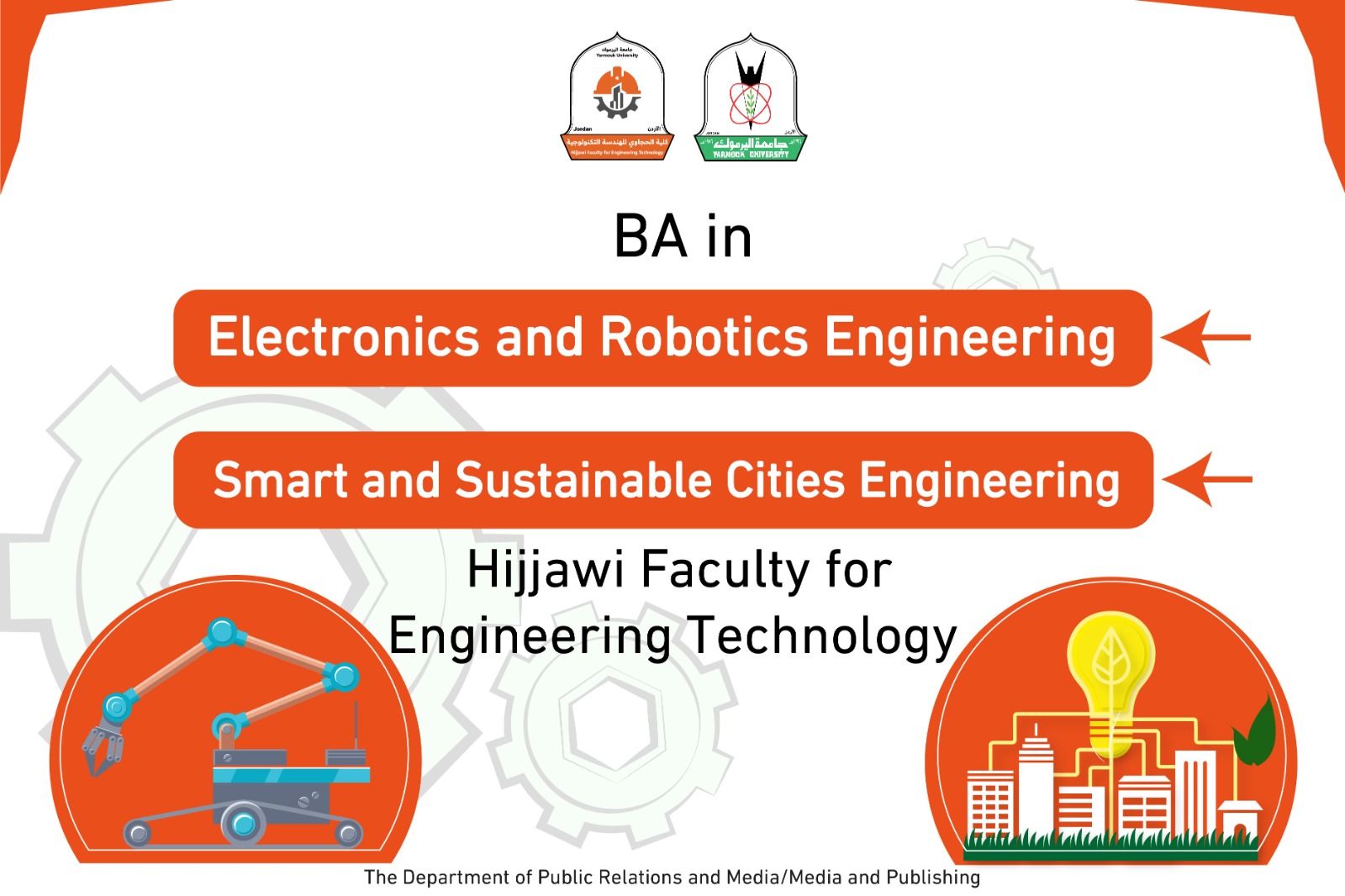
The Higher Education Council decided to approve the establishment of two undergraduate programs in electronics and robotics engineering and smart and sustainable cities, at Al-Hijjawi Faculty of Engineering Technology at Yarmouk University, starting from the first semester of the academic year 2024-2025. The Dean of the Faculty, Professor Muwaffaq Al-Atoum, said that the introduction of the electronics and robotics engineering program came to be the first of its kind at the level of Jordanian universities, and it aims at providing the student with the skills and knowledge necessary for excellence in this vital field, indicating that the student will learn the basics of designing and manufacturing electronic circuits, which is the cornerstone of the semiconductor industry. Moreover, students will gain practical experiences in the development and programming of smart robots, which has become a major part in various fields, such as manufacturing and healthcare. He added that this program is characterized by providing advanced practical education that combines theory and practice, ensuring that its graduate is ready to meet the growing requirements in the labor market, due to the increased need for engineers specialized in electronics and robotics in the local, regional and global market.
Regarding the undergraduate program in smart and sustainable cities engineering, Al-Otoum stressed that this program was established to be the first of its kind at the level of Jordanian universities, and it aims at bridging the gap between technology and sustainability, especially with the rapid growth of the urban population and the need for innovative solutions in the fields of energy, transportation, water management and waste reduction. He then stated that this program ensures the preparation of graduates who are able to face future challenges and turn them into opportunities. Besides, he explained that in this program, the latest technological technologies, such as digital twins, smart grids, and IoT systems be immersed, in conjunction with gaining a solid foundation in sustainable urban planning and artificial intelligence technology. In addition, Al-Otoum explained that the graduates of this program are not only engineers, but also innovative future city leaders, whether they are interested in urban planning, environmental consulting, or smart infrastructure development, as the program provides the opportunity for its graduates to keep pace with the wide and growing fields of this specialization locally, regionally and globally.
With regard to the job opportunities for graduates of these programs, Al-Otoum said that by reviewing all the reports on studying the job opportunities for graduates of engineering disciplines, it is clear that the increasing demand is for specializations that integrate basic engineering sciences on the one hand and modern and emergency technology on the other. He added that what distinguishes the "Electronics and Robotics Engineering" and "Smart and Sustainable Cities Engineering" programs is their integration of modern technology while maintaining the main knowledge in basic engineering sciences by taking into account international standards such as those in the American accreditation ABET and that the study plans for these disciplines include four components in their entirety. Al-Otoum explained that all engineering programs at Yarmouk University include teaching a compulsory course in artificial intelligence, which is unique from the rest of the engineering faculties in the Jordanian universities, in addition to providing an incubating environment for entrepreneurial ideas through student teams, workshops, scientific visits and supported participations inside and outside Jordan.



